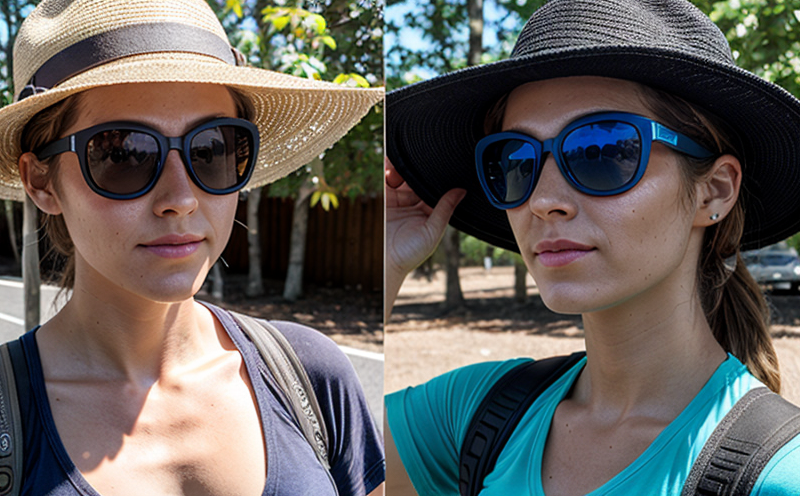EN 170 Protective filters for UV radiation Requirements and testing
The European Standard EN 170 provides essential requirements and test methods for protective filters intended to shield the eyes from harmful ultraviolet (UV) radiation. This standard is particularly relevant in industries where workers are exposed to significant levels of UV light, such as textiles, healthcare, and personal protection equipment manufacturing.
Textiles play a crucial role in protecting individuals against environmental hazards including UV rays. The design and quality of fabrics directly impact their effectiveness as protective barriers. Understanding the specific requirements outlined in EN 170 is vital for manufacturers to ensure compliance and enhance product safety.
The standard defines test procedures that assess various aspects such as light transmission, optical density, and resistance against UV radiation. Compliance with these standards ensures products meet stringent quality benchmarks, thereby safeguarding users from potential health risks associated with prolonged exposure to harmful UV rays.
Manufacturers aiming for global markets must adhere strictly to international standards like EN 170. This not only enhances product reliability but also builds consumer trust by demonstrating adherence to recognized best practices in protective equipment design and manufacture.
To achieve compliance, producers need to understand the detailed specifications provided within EN 170. These include specific limits on light transmission rates, acceptable ranges for optical density values, and precise methodologies used during testing. By adhering meticulously to these guidelines, companies can ensure their products meet or exceed regulatory expectations.
Compliance with EN 170 also offers several advantages beyond mere legal requirements. It provides a robust framework that helps manufacturers design more effective protective filters while reducing the risk of accidents and injuries due to improper use or substandard materials. Moreover, compliance enhances brand reputation by showcasing commitment to high standards of safety and quality.
Given the critical nature of UV protection in textiles, it is imperative for businesses involved in this sector to stay updated on changes and updates to EN 170. Regular reviews help maintain product integrity over time while ensuring continuous improvement in terms of design and functionality.
Eurolab Advantages
When choosing a laboratory partner for EN 170 compliance testing, Eurolab stands out due to its comprehensive suite of services tailored specifically towards textile protection against UV radiation. Our state-of-the-art facilities and experienced technical staff offer unparalleled expertise in this field.
- Accurate Testing: Utilizing advanced instrumentation allows us to provide precise results that are critical for meeting EN 170 requirements.
- Comprehensive Coverage: From initial consultation through final certification, our team offers full support throughout the entire process.
- Fast Turnaround Times: Efficient workflow management ensures timely delivery of reports without compromising accuracy or reliability.
- Expertise: Our specialists possess deep knowledge about EN 170 standards and related technical issues, providing valuable insights during your projects.
Partnering with Eurolab not only simplifies compliance but also enhances the overall quality of your products. By leveraging our extensive experience and cutting-edge technology, you can be confident in achieving successful outcomes across all stages of development.
Competitive Advantage and Market Impact
Adhering to EN 170 standards offers numerous competitive advantages that extend beyond mere regulatory compliance. Meeting these stringent requirements positions your company as a leader in providing high-quality, safe protective textiles. Here’s how:
- Enhanced Reputation: Compliance signals commitment to excellence and user safety, boosting brand reputation among consumers.
- Broad Market Access: By meeting international standards like EN 170, you open up opportunities for exporting products globally without facing barriers imposed by different regulations in various countries.
- Innovation Opportunities: Staying current with the latest developments ensures that your offerings remain at the forefront of innovation within the industry.
- Customer Trust: Consumers increasingly seek out brands that prioritize safety and quality, making compliance a key factor influencing purchasing decisions.
The global market for protective textiles is growing rapidly as awareness around occupational health and safety continues to increase. Staying ahead of trends through rigorous adherence to standards like EN 170 helps maintain competitive edge against other players operating within the same space.
Moreover, investing in compliance can lead to significant cost savings over time by minimizing potential liabilities associated with non-compliance fines or recalls. It also fosters long-term relationships built on trust between suppliers and clients alike.
Use Cases and Application Examples
| Application | Test Parameters |
|---|---|
| Textile Fabrics | Light Transmission, Optical Density, UV Resistance |
| Sun Protection Clothing | UV Blocking Efficiency, Fabric Durability |
| Hospital Gowns and Coveralls | Breathability, Comfort, UV Blocking Efficiency |
Incorporating EN 170 into your manufacturing process ensures that textiles used in these applications effectively block harmful UV rays while maintaining comfort and durability. For instance:
- Sun Protection Clothing: Ensuring adequate UV blocking efficiency is crucial for preventing sunburns and other skin damage.
- Hospital Gowns: Providing breathable, comfortable textiles that still offer robust protection against UV radiation helps maintain hygiene standards in healthcare settings.
The detailed testing procedures outlined in EN 170 ensure that all these applications receive proper attention during development and production stages. This guarantees consistent quality across batches, which is essential for maintaining customer satisfaction and trust.





